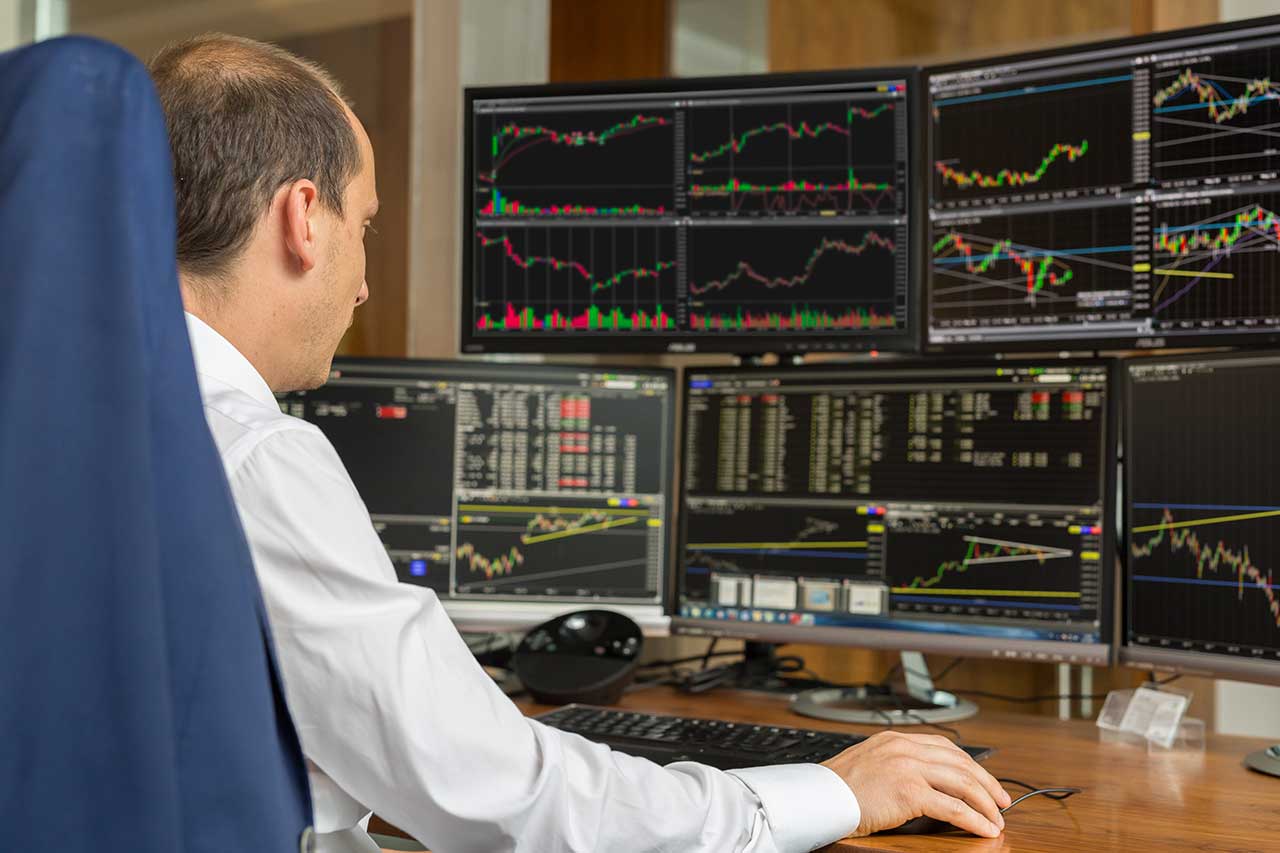As a retail trader, all the responsibility falls to you. You have to pick the direction, trade your view, and take charge of your risk management strategy.
It’s not like that in the interbank world, where participants wear a single hat. They may be analysts, traders or risk managers, but seldom will they be more than one of those things.
Analysts keep a close eye on technical and fundamental developments in order to get a sense of direction. They are always formulating ideas about what should happen when, and why.
Traders do the leg work, so to speak. They base their positions on their colleague’s analysis, and then become responsible for managing the trade from second to second, hour to hour, and so on. They look to scale their trades where appropriate, and generally decide when to get out.
The risk manager keeps a sharp eye on exposure, correlation(s), and anything coming up on the economic calendar likely to make waves in the market. Their goal is to preserve capital, and make sure risks are taken as sensibly as possible.
You’ve got to keep them separated…
As we can see, trading is clearly best done by multiple people (multiple roles), who can theoretically stay objective in their own domain.
The reverse is true in the retail sphere. One person does everything, and usually without any real intuitive hope of staying objective enough to make the best decisions consistently.
It’s almost impossible to measure the market properly as an analyst if you know you also have trades on. A risk manager cannot so easily rule out a trade idea if he or she conceived of it. One person wearing several hats is liable to get confused about their methods and objectives.
So what’s the answer?
Basically, the answer is time management. The best and most workable solution is to divide your time effectively between tasks, and keep clear boundaries.
When you are analysing, analyse. Find your focus and stay true to it, without getting excited and placing trades immediately. Think, plan, research (and develop) entry strategies.
When you are trading, trade. Trust your inner analyst to have been right about your setup, and now trust yourself as a trader, to make the right decisions in the moment. Now is the time to focus exclusively on your trade management. Think: volatility, reversal signals – exit plans.
The tricky part is finding time to play the risk manager, because in theory the risk manager must always be ready to step in and shut it down.
One idea is to imagine being briefed by your Risk Manager every time you sit down to trade, or place an order.
There may be other effective ways: you will find out through experimentation and reflection. You may find it works to consult your inner risk manager before every important decision you make.
There’s no i in Team (although there is one in cliché)
Institutional traders know they are responsible for bringing in the capital that keeps the wheels turning. The level of trust is huge: a rogue trader can easily destroy a trading operation.
Poor performance or cavalier decision-making in a trader lets down the entire team, and subjects them to strict penalties (up to and including dismissal).
Your inner trader depends on your inner analyst, and your inner analyst depends on your inner trader. Your account balance depends on your inner risk manager, who in turn depends on your inner trader and analyst.
A retail trader with a good grasp of this distinction (and the responsibility they have to work well across all of their roles) is in an excellent psychological position to begin making great decisions and converting their goals into reality.
Disclaimer: All material published on our website is intended for informational purposes only and should not be considered personal advice or recommendation. As margin FX/CFDs are highly leveraged products, your gains and losses are magnified, and you could lose substantially more than your initial deposit. Investing in margin FX/CFDs does not give you any entitlements or rights to the underlying assets (e.g. the right to receive dividend payments). CFDs carry a high risk of investment loss.




